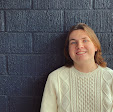It's never easy to end a TV show, especially a long-running, beloved show like Mom . "My Kinda People and the Big To-Do," the last episode of Mom that aired May 13 on CBS, was a good episode. It was maybe even a great episode. But was it a satisfying series conclusion? No, not really. But we're getting ahead of ourselves. Before we talk about what didn't happen in the episode, let's talk about what did happen. The episode begins at an AA meeting, as many episodes have. The ladies - Bonnie, Tammy, Jill, Marjorie, & Wendy - all share. They're all happy and in good places in their lives, much to the annoyance of newcomer Shannon (played by Melanie Lynskey, independent film mainstay whose sitcom credits include Chuck Lorre's Two and a Half Men ). Bonnie wants to help Shannon, as she had been helped by others when she too was new to the program, and even chases Shannon in the rain when she leaves the meeting. Later in the episode, we see Shannon...


Comments
Post a Comment
Leave a comment!